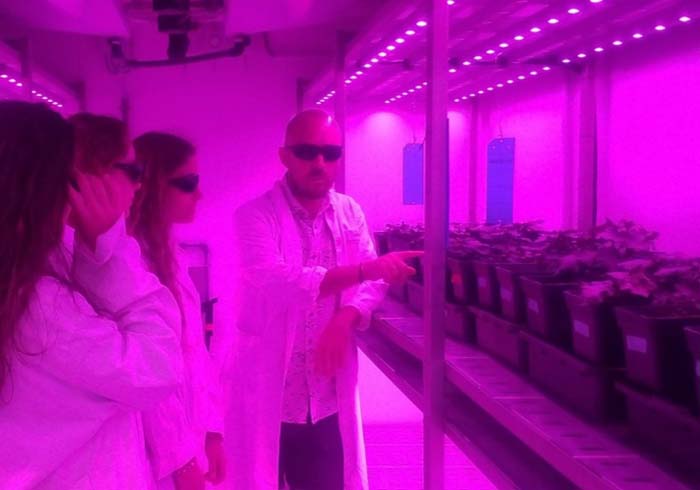Users
Social media
- More details here...
- Address
Parc Científic de la Universitat de València C/
Catedrático Agustín Escardino, 9
46980 Paterna (Valencia) Spain - Email:
iu.i2sysbio@uv.es - Phone:
(+34) 963544810
- Address
Links
The European scientific community calls for allowing genome editing for sustainable agriculture and food production

Investigation
The European scientific community calls for allowing genome editing for sustainable agriculture and food production

The European scientific community has made public, today, Thursday, July 25, an open declaration addressed to the newly elected Parliament and Council Europeans, as well as the next European Commission, to allow genomic editing techniques and with them, sustainable agriculture and improve food production. The request occurs in a global context of population increase, decrease in biodiversity and resources, and increase in planet temperature, with the need to generate more food by improving plants and developing more sustainable crop varieties.
Those who signed the letter have highlighted that the ability to use these new genome editing technologies “is crucial for the well-being and food security of European citizens.” There are 117 research institutes that have signed an initial position report that gave rise to the statement made public today, including the Vice-Rector for Research of the University of Valencia. In addition, scientific personnel from various European institutions have released videos explaining the advantages of this new technique. Among them, one in which Juli Peretó, vice director of the Institute of Integrative Systems Biology (CSIC-Universitat de València) and José Pío Beltrán, participate color="#000000"> CSIC research professor at the Institute of Molecular and Cellular Biology of Plants and coordinator of the CSIC in the Valencian Community.
The public statement highlights that European agriculture can make considerable contributions to the UN Sustainable Development Goals with the application of genome editing techniques. “Precision plant breeding methods such as CRISPR genome editing are innovative tools that have the potential to help achieve these goals more quickly and efficiently.”
To develop these varieties, specialized personnel must have access to the widest possible range of plant breeding tools. The most recent addition to the toolbox is precision improvement with CRISPR, which allows desired crop varieties to be developed in a faster, relatively simpler and much more targeted manner compared to previous techniques.
However, “the current interpretation of European legislation (case C-528/16) prevents the use of genome editing for sustainable agriculture and food production in the EU,” the letter highlights. The coincidence with the publication on July 25 occurs because just a year ago, the Court of Justice of the European Union (CJEU) ruled that plants obtained through precision breeding techniques such as CRISPR are genetically modified organisms (GMO), unlike products produced with much less precise breeding techniques, which are exempt from the legislation GMOs.
“This is highly problematic as European GMO legislation presents an unattainable regulatory threshold for research institutes and small breeding companies. Such legislation is simply too complicated and expensive for most of these centers and small companies to comply with.”
According to the scientists who signed the letter, EU legislation on GMOs differs from legislation in many other nations: “the inability to market genome-edited crops in Europe will have a chilling effect on R&D investments in the European plant breeding sector. The result will be that the future development of beneficial varieties in a faster and much more direct way will stop in Europe, while the rest of the world adopts the new technology. plants, as well as others dedicated to agriculture and production in Europe, include genome editing as one of their tools.
“Other countries apply legislation that is more adapted to the current state of scientific knowledge, and exclude plants that have alterations that could also occur naturally or as a result of conventional breeding activities.” In other words, in these countries genome-edited plants are not subject to GMO legislation, allowing genome editing to be used for more sustainable agriculture and food production.
Fungicides
The scientific community has used modern precision breeding techniques to develop a mold-resistant wheat variety. In a single step, they introduced a small alteration in the so-called MLO gene that confers resistance to powdery mildew. This type of alteration of the MLO gene already exists in nature, but it is very difficult and time-consuming to introduce through conventional breeding methods. Innovators like CRISPR can significantly accelerate the introduction of beneficial properties into crops. The cultivation of MLO wheat does not require the application of fungicides to prevent diseases, which makes it more sustainable.
Letter in English here.
Letter in Spanish here.
Juli Peretó and José Pío Beltrán video link: http://go.uv.es/ucDwx3U.
Images:




